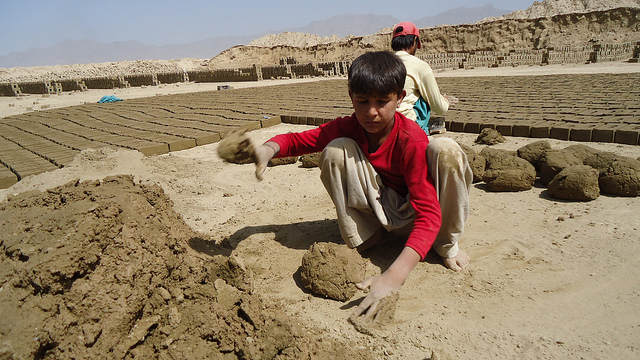No law can Change behaviour of employer : Domestic Worker
No law can Change behaviour of employer : Domestic Worker
On International Domestic Workers’ Day, Domestic Worker Rights Activists celebrate a growing movement to assert the rights of this vast but hidden workforce. An estimated 67.1 million people are employed in domestic work around the world, most of them women.
Domestic work has enabled many women to enter the labour market and benefit from economic autonomy
The large supply of domestic workers in India has meant a meant a shift of care responsibilities from women in the households to hired domestic workers who are a predominantly female and largely invisible
Domestic work as an economic activity is too vast and employs too many to remain unregulated. Though the 2011 NSSO data put the number of domestic workers at 3.9 million, trade unions estimate the number to be around 10 million.
The social security schemes of Aam Aadmi Bima Yojana with Pradhan Mantri Jeevan Jyoti Bima Yojana (PMJJBY)and Pradhan Mantri Suraksha Bima Yojana (PMSBY) to provide life and disability coverage to the unorganised workers including domestic workers in the age group of 18-50 , depending upon eligibility.
PMJJBY gives coverage of Rs 2 lakh on death at premium of Rs 330 per annum and PMSBY gives Rs 2 lakh coverage on accidental death besides disability benefits at premium of Rs 12 per annum. LIC implements these converged schemes .The annual premium is shared on 50:50 basis by the Centre and State governments/state nodal agencies. The benefits of these schemes are also available to female domestic workers .
Domestic worker is a person who is employed in any household on a temporary or permanent basis to do the household work.
In the decade after liberalisation, there was a nearly 120% rise in the number of domestic workers in India.
Women constitute over two-thirds of the workforce in this unorganised sector.
According to estimates by the International Labour Organisation (ILO), there are at least four million domestic servants in India.
Domestic work as an economic activity is too vast and employs too many to remain unregulated. Though the 2011 NSSO data put the number of domestic workers at 3.9 million, trade unions estimate the number to be around 10 million.
Most of these are from vulnerable communities – Adivasis, Dalits or landless OBCs. Nearly all of them are migrant workers. And an overwhelming number are women
A domestic worker, Maya Das, was allegedly beaten up by former Miss Asia Pacific 2002, Tina Chatwal, at her residence in DLF Westend Heights, a housing society in DLF 5, on Thursday evening. This happened a day after a domestic worker employed with a Romanian couple, who live in a condominium on Golf Course Road, committed suicide by hanging self from a fan. Hundreds of domestic workers and their husbands gathered outside the upscale condominium the same evening and held protests till Friday morning, demanding an FIR against Chatwal.The policy has been hanging fire for nearly three years as it was to be presented before the Cabinet in 2015. Among others, the policy envisages to make a provision for a minimum salary of Rs 9,000 per month, compulsory paid leave of 15 days in an year and maternity leave benefits to full-time domestic helps.
Wages for the domestic workers are determined by factors such as tasks performed, hours of work, their social status, skills (or the lack of it), the need for flexibility and other labour market conditions. There are on-going debates over the norms for setting wages
The social security schemes of Aam Aadmi Bima Yojana with Pradhan Mantri Jeevan Jyoti Bima Yojana (PMJJBY)and Pradhan Mantri Suraksha Bima Yojana (PMSBY) to provide life and disability coverage to the unorganised workers including domestic workers in the age group of 18-50 , depending upon eligibility.
PMJJBY gives coverage of Rs 2 lakh on death at premium of Rs 330 per annum and PMSBY gives Rs 2 lakh coverage on accidental death besides disability benefits at premium of Rs 12 per annum. LIC implements these converged schemes .The annual premium is shared on 50:50 basis by the Centre and State governments/state nodal agencies. The benefits of these schemes are also available to female domestic workers .
India has two laws which address the concerns of domestic workers and, in a circuitous way, regard domestic workers as "workers": The Unorganised Workers' Social Security Act, 2008, (UWSSA) and the Sexual Harassment of Women at Workplace (Prevention, Prohibition and Redressal) Act, 2013.
References
- http://in.one.un.org/page/rights-for-domestic-workers/
- http://ndwm.org/domestic-workers/
- http://www.thehansindia.com/posts/index/Civil-Services/2017-08-08/Challenges-associated-with-domestic-workers-in-India/317650
- http://ndwm.org/domestic-workers/
- http://www.wiego.org/informal_economy_law/domestic-workers-india
- https://timesofindia.indiatimes.com/business/india-business/govt-working-on-national-policy-for-domestic-workers-gangwar/articleshow/63268599.cms
- https://economictimes.indiatimes.com/news/economy/policy/47-5-lakh-domestic-workers-set-to-get-legal-status-and-minimum-wages/articleshow/61108494.cms
- http://www.ndwm.org/resources/Issues%20of%20Domestic%20workers%20in%20India.pdf
- http://www.wiego.org/informal_economy_law/domestic-workers-india
- https://thewire.in/rights/domestic-helps-abuse-exploitation
- https://beautypageants.indiatimes.com/others/maid-beaten-up-by-beauty-queen-protest-erupts/articleshow/64613180.cms
- https://www.firstpost.com/india/centres-draft-policy-for-domestic-workers-lacks-teeth-fails-to-chart-employee-employer-relationship-4480851.html
- https://www.firstpost.com/india/centres-draft-policy-for-domestic-workers-lacks-teeth-fails-to-chart-employee-employer-relationship-4480851.html
- http://www.newindianexpress.com/states/tamil-nadu/2018/jun/15/domestic-workers-seek-good-working-condition-1828438.html
- http://www.uniindia.com/~/aiuwc-demands-law-to-protect-domestic-workers-sends-postcards-to-pm/India/news/1262777.html
- https://thewire.in/rights/domestic-helps-abuse-exploitation
- https://www.firstpost.com/india/congress-seeks-enactment-of-central-law-for-welfare-of-domestic-workers-in-india-4524291.html


Comments
Post a Comment